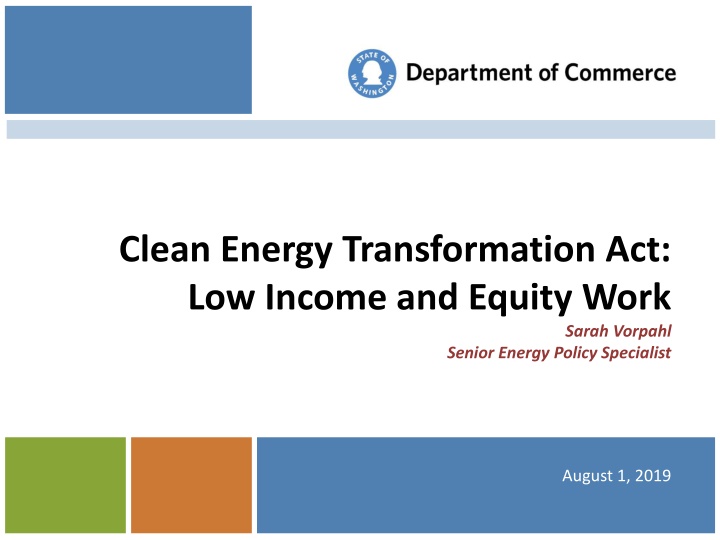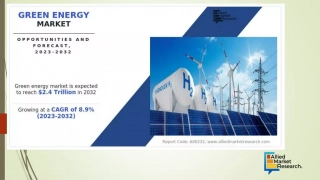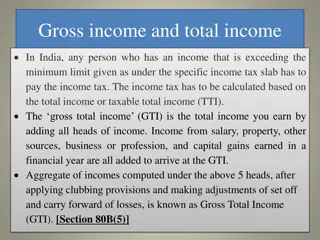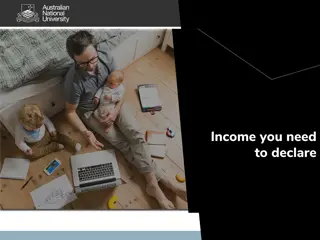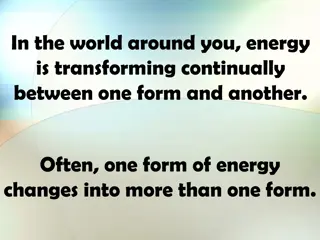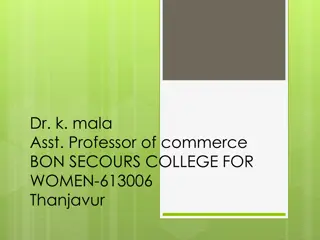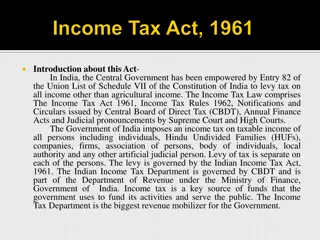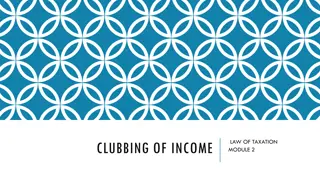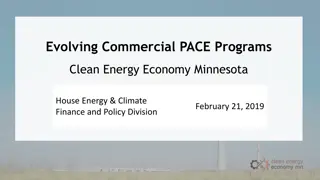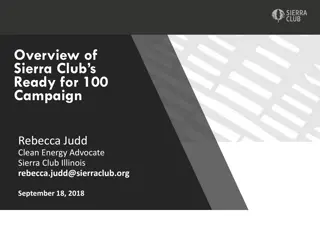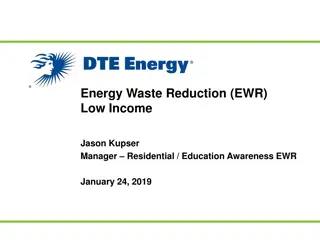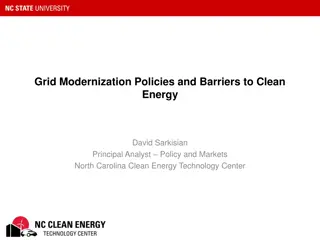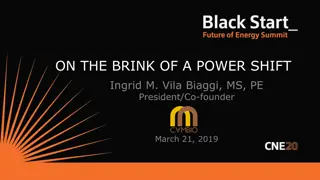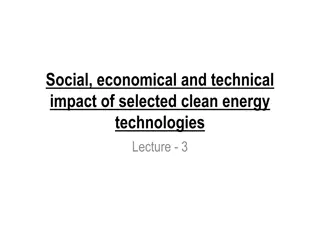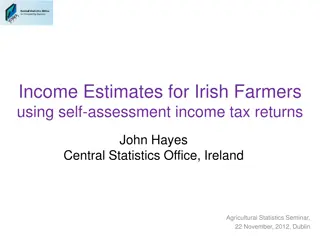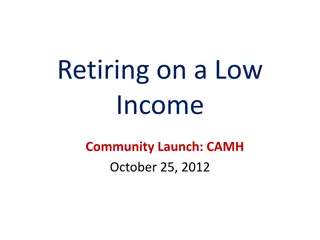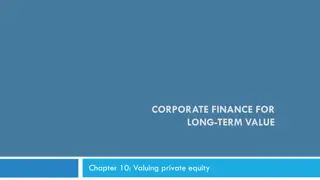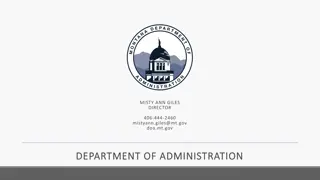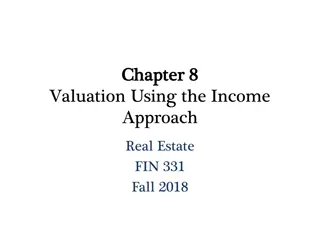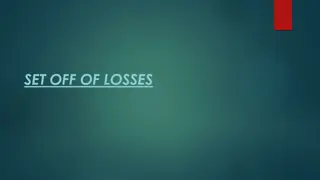Clean Energy Transformation Act: Low Income & Equity Initiatives
This content highlights the initiatives and goals of the Clean Energy Transformation Act regarding low-income households and equity. It emphasizes energy assistance programs, data collection, and targets set to address energy needs and efficiency. The Department of Commerce in Washington State plays a key role in implementing these plans.
Download Presentation

Please find below an Image/Link to download the presentation.
The content on the website is provided AS IS for your information and personal use only. It may not be sold, licensed, or shared on other websites without obtaining consent from the author.If you encounter any issues during the download, it is possible that the publisher has removed the file from their server.
You are allowed to download the files provided on this website for personal or commercial use, subject to the condition that they are used lawfully. All files are the property of their respective owners.
The content on the website is provided AS IS for your information and personal use only. It may not be sold, licensed, or shared on other websites without obtaining consent from the author.
E N D
Presentation Transcript
Clean Energy Transformation Act: Low Income and Equity Work Sarah Vorpahl Senior Energy Policy Specialist August 1, 2019
We strengthen communities The Department of Commerce touches every aspect of community and economic development. We work with local governments, businesses and civic leaders to strengthen communities so all residents may thrive and prosper. Planning Business Assistance Infrastructure Energy Community Facilities Housing Safety / Crime Victims Washington State Department of Commerce 2
CETA equity and low-income language Intent: Sec. 1(6) 2030 Goal: Sec. 4(8) Clean Energy Implementation Plans: Sec. 6(1)(c) Energy Assistance Programs: Sec. 12 Integrated Resource Planning: Sec. 14(1)(k) Cumulative Impact Analysis Tool: Sec. 24 Where do you see touchpoints with your work? Washington State Department of Commerce 3
CETA equity and low-income language Intent: Sec. 1(6) 2030 Goal: Sec. 4(8) Clean Energy Implementation Plans: Sec. 6(1)(c) Energy Assistance Programs: Sec. 12 Integrated Resource Planning: Sec. 14(1)(k) Cumulative Impact Analysis Tool: Sec. 24 Washington State Department of Commerce 4
Energy Assistance Programs (Sec. 12) Beginning 07/31/2020 Commerce collects data from utilities: number and demographic characteristics of households served by energy assistance amount of assistance level of energy burden and energy assistance need among customers served housing characteristics including housing type, home vintage, and fuel types energy efficiency potential Washington State Department of Commerce 5
Energy Assistance Programs (Sec. 12) Beginning 07/31/2020 Utilities submit assessment and plan to reach: 60% of the current energy assistance need, or increasing energy assistance by 15% over the amount provided in 2018, whichever is greater, by 2030 90% of the current energy assistance need by 2050 Washington State Department of Commerce 6
Energy Assistance Programs (Sec. 12) Commerce must submit a biennial report to the legislature that includes: statewide summary of energy assistance programs, energy burden, and energy assistance need current expenditures on low-income energy assistance additional mechanisms for energy assistance and evaluation of effectiveness (especially for low income households) Washington State Department of Commerce 7
Energy Assistance Programs (Sec. 12) Other parts of this section: All utilities must have a low income EAP program by July 31, 2021 Commerce and UTC are responsible for establishing guidelines for energy assistance need and low income Washington State Department of Commerce 8
Low Income and Equity Workgroup Objectives Facilitate statewide workgroup sessions across Washington to acquire community feedback and expertise about clean energy priorities and interests Identify and address knowledge gaps between traditional energy stakeholders, like utilities and state and local agencies, and community members and low-income advocates Engage new stakeholders that have not yet been a part of the clean energy conversation Washington State Department of Commerce 9
Low Income and Equity Workgroup Work Product guidance for utilities on data for Commerce make resources available to the public create opportunity for community energy planning conversations develop scope of work for Commerce legislative report and definitional guidelines Washington State Department of Commerce 10
Low Income and Equity Workgroup Sept 12, 2019: Energy Assistance Program Technical Assistance Conference (Blaine, WA) Sept 23, 2019: Community Energy Planning: Success Stories from Tenino, WA (webinar) Sept 30-Oct 2, 2019: Housing Washington Conference (Spokane, WA) Oct 15-17, 2019: Weatherization Network Meeting (Spokane, WA) Oct 15-17, 2019: Infrastructure Assistance Coordinating Council (Wenatchee, WA) Early Nov: Tacoma workshop (date tentative) Oct through summer 2020: Other workshops pending Washington State Department of Commerce 11
WebEx Participants Please answer these questions via Survey Monkey at commerce.wa.gov/ceta (under Rulemaking Activities ) Discussion Please use index cards to answer the following questions What should Commerce prioritize in planning future workshops and outreach? What questions remain after today s workshop? 2 minute self-reflection 7 minutes in pairs Invite 2-3 pairs to report out Washington State Department of Commerce 12
Sarah Vorpahl Senior Energy Policy Specialist cetal@commerce.wa.gov www.commerce.wa.gov
